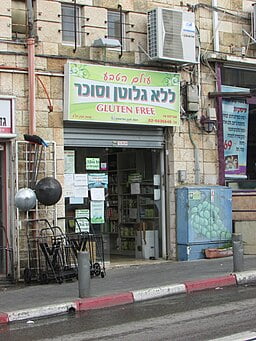Gluten-free diet is an eating plan that excludes foods containing gluten.
Gluten is a type of protein present in wheat, barley, rye, and triticale - a hybrid of wheat and rye. For individuals living with coeliac disease - an autoimmune disorder, the ingestion of gluten triggers their immune system to attack their own small intestine, causing substantial harm. This reaction could manifest in a variety of symptoms like stomach-ache, bloating, diarrhoea, constipation, unexpected weight loss, chronic fatigue, and skin issues. For instance, imagine consuming something as harmless as a slice of bread, and your body retaliates as if it's a serious threat, resulting in an onslaught of these unpleasant symptoms. This helps understand the gravity of coeliac disease.
There are many other people who may benefit from a gluten-free diet, even if they do not have celiac disease. These include people with non-celiac gluten sensitivity (NCGS), which is a condition that causes similar symptoms to celiac disease. NCGS is not as well-understood as celiac disease, but it is estimated that up to 1% of the population may have it.
Furthermore, some individuals voluntarily choose a gluten-free diet intending to boost their overall health or to lose weight. These dietary choices sometimes stem from varying theories or beliefs about health and wellbeing. While these approaches to diet can lead to subjective improvements in wellness for some, it's important to stress that scientific research provides no tangible evidence that a gluten-free lifestyle brings benefit to people not diagnosed with either coeliac disease or NCGS.
If you're contemplating adopting a gluten-free diet, it's of utmost importance to consult your GP before making such a significant change. They can guide you on whether this dietary lifestyle is the ideal fit for you and provide necessitous guidance on the transition process. For a deeper understanding of this viewpoint, take a look at this trusted source that explains the need for medical advice before overhauling one's diet.
What Foods are allowed on a gluten-free diet:
- Fruits and vegetables - such as apples, bananas, oranges, broccoli, and spinach.
- Meat, poultry, and fish
- Eggs
- Dairy products
- Beans, lentils, and nuts
- Gluten-free grains, such as quinoa, amaranth, and buckwheat
- Oats that are declared gluten-free (only if they have official certification as being gluten-free). It's important to note that many oats are often considered 'not safe' for a gluten-free diet due to the risk of cross-contamination in processing facilities. For oats to be labelled 'certified gluten-free', they must be processed in a way that eliminates the risk of contamination.
- Gluten-free processed foods, such as bread, pasta, and crackers
What do you avoid on a gluten-free diet?
- Wheat, barley, rye, and triticale
- Foods made with these grains, such as bread, pasta, cereal, and beer
- Processed foods that may contain gluten, such as soy sauce, salad dressings, and soup
- Foods that are cross-contaminated with gluten, such as foods that are processed in the same facility as gluten-containing foods
If you're committed to a gluten-free diet, it's key to stay vigilant about scrutinising food labels as scores of processed foods could potentially include gluten, despite not explicitly seeming so. A can of soup or a packet of crisps could surprisingly also contain gluten. Also essential is to keep a careful eye out for cross-contamination, which can happen if gluten-free food is in contact with food harbouring gluten. An example to think about might be eating gluten-free bread manufactured in facilities that also produce wheat products, in this scenario, possibility of cross-contamination persists. For more guidance on negotiating such pitfalls, here's a helpful guide on how to read food labels for gluten.
If you're a novice to the gluten-free living, fret not - there are plenty of resources to guide you on this journey. One such resource is the Celiac Disease Foundation's website, providing a treasure trove of information on coeliac disease and guidance on living a gluten-free life. Plus, a number of cookbooks and websites are specifically dedicated to providing scrumptious gluten-free recipes.
Adhering to a gluten-free meal plan, while requiring a fair bit of adjustment, is entirely achievable. With thoughtful planning and a bit of determination, a satisfying, wholesome gluten-free diet is within reach. However, do bear in mind that each person's journey could differ, presenting unique challenges. Overcoming these might require seeking the right support, learning from personal failures, and persistently honing your food choices and preparation methods.
Image credit
יעקב, CC BY-SA 4.0, via Wikimedia Commons

